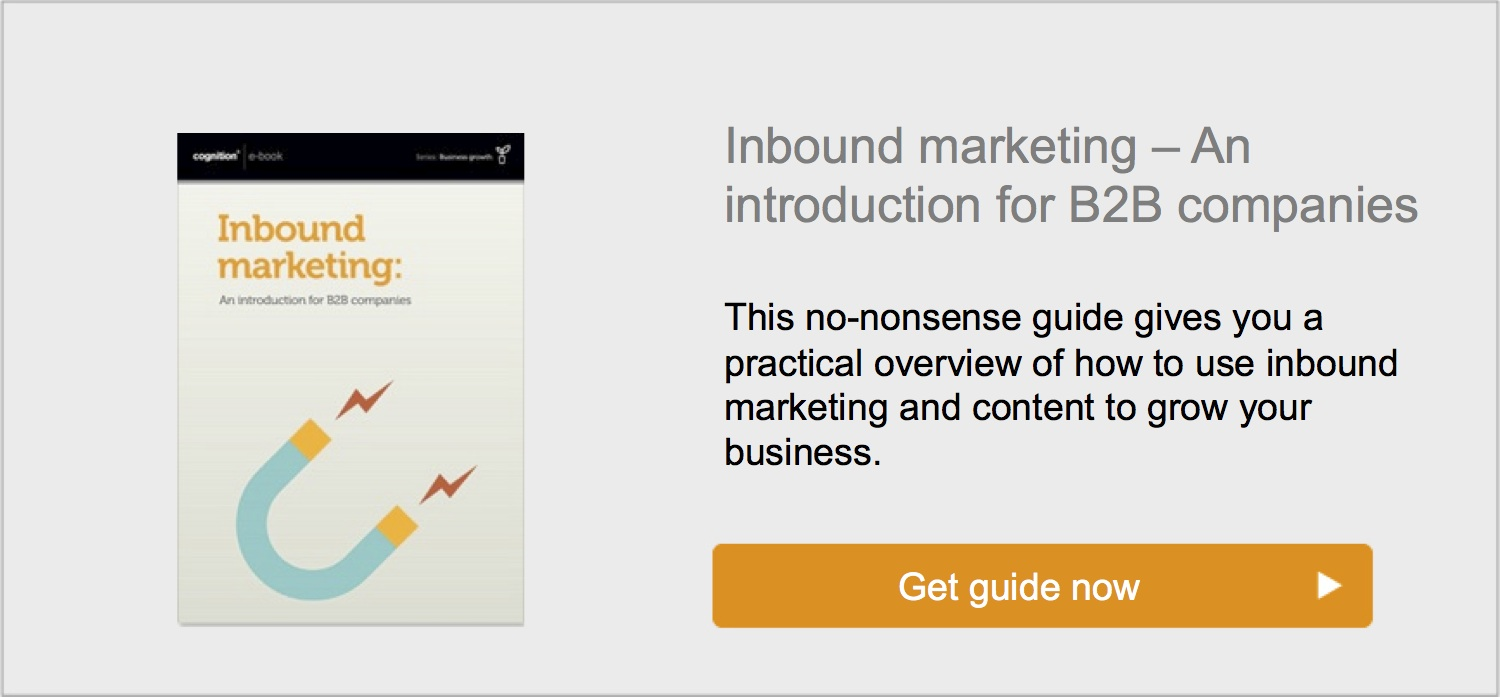
|
Most marketing people like buzzwords, and it seems like everyone is talking about inbound marketing now. But what exactly is it? And how is it different to the online marketing you’ve been doing to date? The idea behind inbound marketing is that buying patterns have changed |
In 1998, the average consumer saw or heard 1 million marketing messages – almost 3,000 per day – according to Fast Company. That was 15 years ago. We’re now in the age of 24/7 news, smartphones and social media. Research from comScore shows that more than 130 billion internet searches are now conducted each month.
15 years ago prospects needed you to give them information about your products and services. Now they do a lot of background research on their own – much of it online – and are further along in the purchasing process once they make initial contact.
Thus, you’re at a disadvantage compared to 15 years ago. Prospects are inundated with marketing messages now. They are more sceptical, because everyone is ‘a leader’ or ‘an expert’. And they can compare suppliers much more quickly and easily.
So you win business by enticing prospects with useful information that helps them make a decision. The information isn’t just about traditional ‘sales’ messaging. It’s about educating your prospect, so that when they come to buy they say: ‘This company really knows what they’re talking about. I trust them, so I’ll choose them.’
Inbound marketing defined – what marketing gurus say
HubSpot, a brilliant software that has cornered the marketing on helping companies manage inbound marketing, defines inbound marketing as follows:
‘Inbound marketing is about creating and sharing content with the world. By creating content specifically designed to appeal to your dream customers, inbound attracts qualified prospects to your business and keeps them coming back for more.’
Inbound marketing defined – a better explanation
The definition above isn’t precise, and there’s a good reason for that. However much marketing gurus want to sell inbound as the latest fad, it’s not a new idea. It simply describes using traditional direct marketing practices online.
Drayton Bird, who wrote the textbook on direct marketing, defines direct marketing as ‘any advertising activity which creates and exploits a direct relationship between you and your prospect or customer as an individual.’
Using this common-sense approach to direct marketing, we have developed our own definition of inbound:
‘Inbound marketing is a fancy way to describe online marketing activity that creates and exploits a direct relationship between you and your prospect or customer as an individual.’
Inbound marketing channels
The important thing to remember about ‘inbound marketing’ is that the phrase is a misnomer. The tactics that fall under the ‘inbound’ umbrella include things like sending marketing emails, creating targeted online adverts and sharing information via social media. In other words, methods that are clearly ‘outbound’.
Inbound marketing channels include the following (many of which you are likely already doing):
- Websites
- Social media
- Search engine optimisation
- Email marketing
- Blogs
- Online guides, case studies and white papers
- Online advertising
- Webinars
- Slideshows
Given that inbound marketing is about creating and developing a direct relationship with customers online, you need to think about digital marketing as being a continuous engagement with prospects – so you can nurture them from stranger to paying customer.
For example: Are your eshots directing recipients to targeted, relevant content on your website? Are you using online guides and case studies as a way to capture data from website visitors? Are you offering information related to each stage of the purchasing process?
Thinking about these sorts of questions that will help you refine your online marketing so you cultivate that direct relationship between you and your prospect.
The key question should always be: what do I want the prospect to read or do next?





